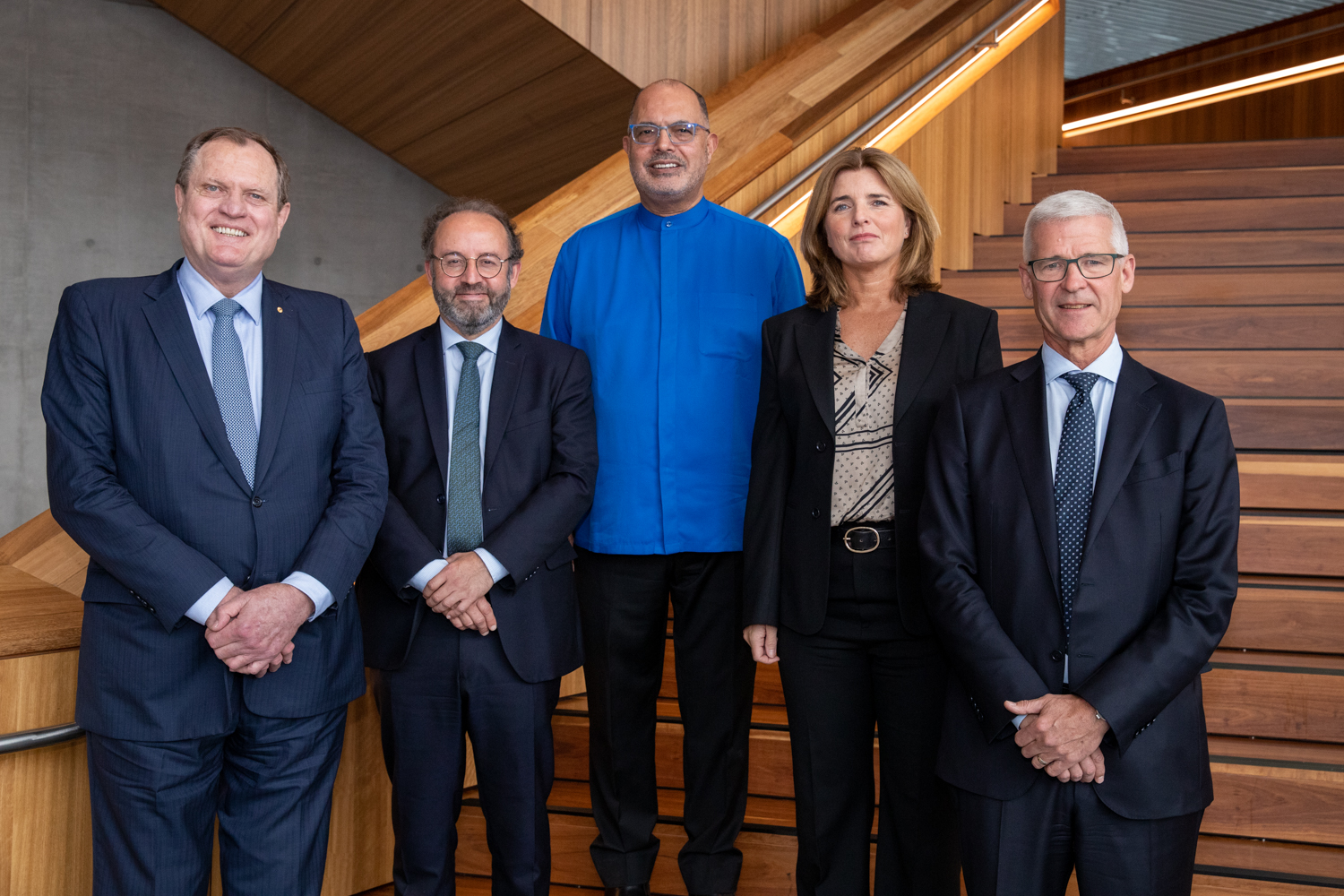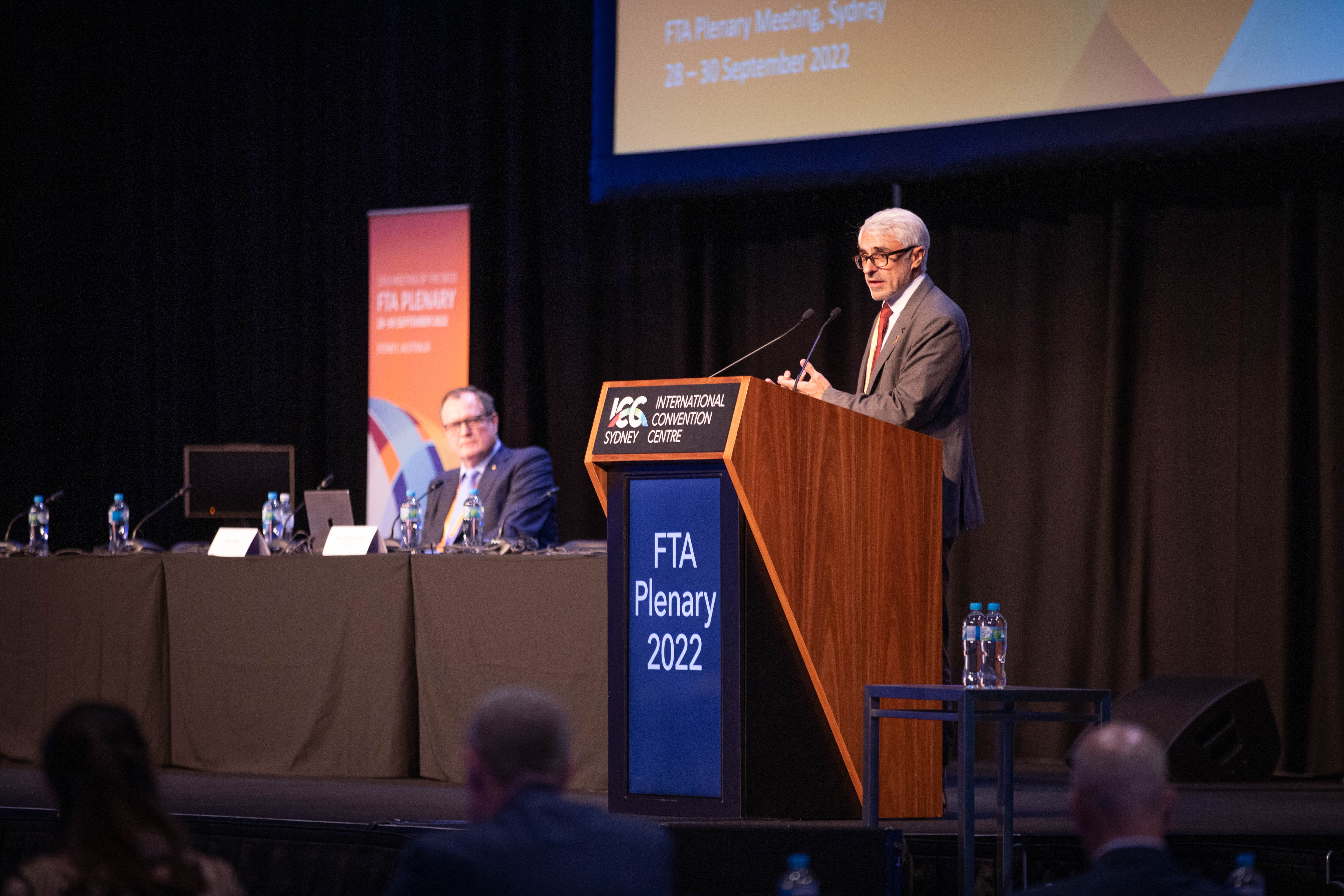Tax chiefs meet in Sydney to address multinational tax issues
Proactive engagement with tax authorities and wider ESG considerations
Optus confirms 14,900 active Medicare details exposed in data breach
Trouble at the OECD Inside Story
University of Toronto Faculty of Law News, The AI Taxman: U of T Law Prof is the Subject of an Educational Documentary:
As an expert in taxation law, University of Toronto Professor Benjamin Alarie, the Osler Chair in Business Law at U of T’s Faculty of Law, set on a path several years ago to change how legal research is done.
In 2015, he co-founded a legal tech startup with U of T Law professors Anthony Niblett and Albert Yoon. Blue J’s software draws upon artificial intelligence to provide instant and comprehensive answers in complex areas of tax, labour, and employment law.
“Artificial intelligence is not going t
‘Gatekeeper’ to combat companies fraud The Times
A Danish City Built Google Into Its Schools—Then Banned It Wired
Work harder than you expect from others
Federal Reserve Board, August 2022. The Financial Stability Implications of Digital Assets Pablo D. Azar, Garth Baughman, Francesca Carapella, Jacob Gerszten, Arazi Lubis, JP Perez-Sangimino, David E. Rappoport, Chiara Scotti, Nathan Swem, Alexandros Vardoulakis, Aurite Werman – “The value of assets in the digital ecosystem has grown rapidly, amid periods of high volatility.
‘Be afraid’: Dreyfus promises strong powers for new national anti-corruption body
Fed Chair Powell: There isn’t a painless way to do this Sam Ro
Is Philip Lowe right to say our taxes might have to rise?
This week, Mirit Eyal-Cohen (Alabama; Google Scholar) reviews Assaf Harpaz (Drexel; Google Scholar), International Tax Reform: Challenges to Multilateral Cooperation, 44 U. Penn. J. Int’l L. __ (2022).
With the digitalization transformation of the economy where commerce has been occurring mainly online, and most functions become automated, concerns for cross-border taxation of multinational corporations became the focus of international tax discussions. The digital platform allows greater mobility of large multinational enterprises (MNEs) to shift profits more easily to low-tax jurisdictions or avoid paying tax altogether in market jurisdictions. It is estimated that corporate tax avoidance amounts to between $100 to $240 billion in annual costs, equal to 4% to 10% of global corporate income tax revenues. The OECD has had a central role in designing international tax norms. In mid-2021, while implementing the BEPS agreements, the OECD began working with an Inclusive Framework of over 140 countries that includes non-OECD members on a major reform to profit-shifting rules governing cross-border taxation of multinationals. Indeed, this reform marks a crucial juncture in international tax history and cross-border taxation.
The federal budget bottom line could be irreparably damaged if multinationals and large businesses continue to use “dodgy” behaviour to avoid tax, the assistant treasury minister will warn as the government readies new laws to publicly embarrass companies into paying their fair share.
Andrew Leigh will use a speech to the OECD on Thursday to reveal the October budget will contain details of the government’s planned overhaul of multinational company tax, including its extension to large businesses tendering for substantial government contracts.
Multinational tax avoidance a threat to budget bottom line: Leigh

